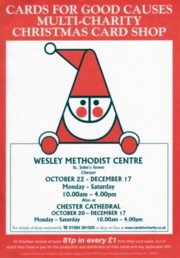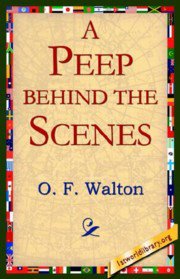The meeting in Liverpool library turned out to be well worth while because apart from meeting writers I already knew like Margaret Murphy and David Evans I also met a few new ones. Mary Sharratt is the successful author of two novels
SUMMIT AVENUE and
THE REAL MINERVA. She is also a creative writing teacher and the editor of an anthology of fiction which features a woman as a strong anti-hero in the style of Lady Macbeth. I shall blog about that later.
The review of
SUMMIT AVENUE is immediately below, and the interview follows next to the photograph.
 SUMMIT AVENUE
SUMMIT AVENUE is an absorbing book, the sort you can’t bear to put down and keep picking up again almost in spite of yourself. The best thing I find, in those circumstances, if you can, is to submit, put life on hold for a while and enjoy... and I did, all the way through. The book is based in a period before, during and just after the first world war in Minneapolis. The time and place are very well evoked, not only in the descriptions but also in the minds of people that live there. It is very interesting to see the world through the eyes of a girl based in the US looking back at Europe, especially during a time when her home country, Germany, is at war with just about everyone else. She sees the reports and propaganda which demonise her own country and we learn about her reactions. In fact a lot of information about the era is incorporated in a skilful and entertaining way - not just about the first world war but also about the life of people struggling to find their way in early twentieth century America.
The heroine is a young poor emigrant and at first it is a heart-warming tale of success. A fairy tale is introduced early on and this haunts the narration as a recurring motif in a very satisfying way. In fact the writing, which although rooted in reality, also has an otherworldliness feel which adds to an impression of a fairy tale. For instance, here is how the book starts: ‘I was born in a forest even darker and more tangled than this one - in the Scwarzwald with its valleys, deep as scars. My valley was so steep and narrow , we called it Höllental, valley of hell. Enclosed by precipitous hills, it got very little sunlight. Bruised clouds shrouded the sun in morning....’
The characters are all very well drawn and the first book (of the three making up the novel) describes an unusual coming-of-age story. The sex scenes are particularly well done. The plot then takes unusual and unexpected directions and the ending is moving and satisfying, leaving the reader with a sense of hope.
SUMMIT AVENUE was published by the small press Coffeehouse Press and it has become one of its biggest sellers. It is now in its third reprint. The author, Mary Sharratt, is now published by Houghton Mifflin with a new book, THE VANISHING POINT coming out in 2006. She has kindly agreed to answer a few questions:

An INTERVIEW with
Mary SharrattFirst some specific questions about SUMMIT AVENUE
C.D: Where did you write the book -in Germany or the United States - do you think this has any bearing on how the book was written?
M.S: I wrote the first draft of SUMMIT AVENUE when I was living in Innsbruck, Austria, where I was teaching English at a Catholic girls' boarding school as part of a Fulbright Fellowship. It was winter in the Alps and my room was barely heated. Every night after work, I'd huddle under the covers and write longhand into a spiral notebook. I didn't have television and I'd run out of books to read. This was how I relaxed in my spare time. The squalor of my accommodations (there was mildew on the walls) was the inspiration for John's room in the novel.
I continued writing after I moved to Munich the following year. Nearly a decade later, when the book was accepted for publication, the editor remarked that my English sentences seemed to betray a very German syntax. I do think those years of being submerged in a very different culture allowed me to get under the skin of my German protagonist, Kathrin.
C.D: Was there a particular reason why you chose to write about a German immigrant?
M.S: Writing about a German immigrant in Minnesota in the early 20th century was almost an autobiography in reverse--as though I were writing in a dark, inverted mirror. In fact, I was a Minnesota-born expat living in Germany in the late 20th century, pouring my sense of transcultural alienation and wondering where "home" really was into Kathrin's story. In my day to day life, I was the foreigner with the funny accent.
C.D: Which part of the book did you find easiest to write?
M.S: The fairy tales, because they came from the folk tradition. They helped inspire much of the plot and gave it a depth and haunting quality that would be lacking if I had left them out.
C.D: Which the hardest?
M.S: The scenes of violence.
C.D: You have a very interesting bibliography at the back. What research did you have to do for the book?
M.S: I did a great deal of research over the decade I spent writing the book. I visited the historical milling district of Minneapolis and walked up and down Summit Avenue in St. Paul. I visited antique stores to physically hold the sort of objects my characters would have had in their homes. I interviewed my husband's Flemish grandmother about her experience of the First World War. For a while, I collected WWI era postcards.
C.D: I would think that your book is of special appeal to women (this woman liked it very much any way!). Do you write specifically for women?
Has a man ever read your book? If so, what was his reaction?
M.S: When I sit down to write, I don't think, "This is just for women." Or, "This is for men." I write the story that longs to be told. Interestingly, the acquiring editor for SUMMIT AVENUE was a man and I've received enthusiastic fan mail from men.
I don't hide my feminism and I don't flinch from the "truth-telling" side of fiction, ie delving into difficult subjects such as family violence, for fear of alienating male readers. I tell the truth about my characters' lives.
I believe it's both misleading and patronising to assume that fiction centred on women and their experience is for women only, whereas male-centric stories are somehow universal.
C.D: I very much liked the way the motif of the fairy story ran all through the book. Is this an authentic fairy story? What were your motivations in choosing this particular one?
M.S: There are three fairy tales that form the scaffolding of the book and all are authentic tales from the folk tradition.
First, there is "Wassalissa the Beautiful," a Russian tale about the maiden who dares to fetch fire from the fearsome sorceress, Baba Yaga. Second is "Frau Holle," a tale from the Brothers Grimm collection about a downtrodden girl who leaps down a well after her bloodied spindle, emerges in a land of unparalleled beauty ruled by a fierce-looking but gracious old woman. The maiden works hard for her new mistress, then comes home showered in gold. However, her greedy sister is showered in filth. The third tale is an obscure Flemish story called "The Three Mirrors of the Sorceress," and is about bringing the dead back to life.
All three tales revolve around powerful female figures who are halfway between witches and goddesses. Once the maiden confronts the witch, she will never be the same again. She is utterly transformed. She comes into her true powers. As these tales weave themselves into the fabric of Kathrin's life, she claims her powers and true identity.
And now the seven questions about you...
C.D: Do you have any connection with snails?
M.S: I have a very cordial relationship with those snails who elect to stay far, far away from my garden.
C.D: What is your proudest moment?
M.S: When the very first review of my first novel, SUMMIT AVENUE, was a starred review in Publisher's Weekly. At that moment, my ten years of writing in obscurity were validated.
C.D: Have you ever had a life-changing event - if so what was it?
M.S: When I was 21, I went to study in Freiburg, Germany for a year. I did this alone and independently, without the aid of a "study abroad" programme. I had to pass a written and oral exam to prove that my German was good enough. I had to find my own accommodation in a city with a shortage of affordable housing. I didn't know a soul in that country. Then, by the end of the academic year, I had lots of friends from all over the world and I spoke very fluent German. I'd also spent the spring holidays backpacking through Ireland and Britain. In a youth hostel in Stow on the Wold, I met the man I would later marry. After that, I decided I would stay in Europe and, apart from a brief interlude in California in 2001, I have lived all of my adult, post-university life on this side of the Atlantic.
C.D: What is the saddest thing you’ve ever heard of or seen?
M.S: Every day the news is full of horrendous events. It's hard to choose one. I think the torture and other human rights violations being committed by U.S. soldiers in Iraq are sad and shaming in the extreme.
C.D: If there was one thing you’d change about yourself what would it be?
M.S: I wish I'd had a chance to learn horse riding as a child. I started learning to ride at the age of 39, which has been one of the most incredible experiences. I am awed by the gentleness and power of horses and the horse-human bond. Now I can't imagine my life without the weekly trip to the stable. When I look back on all those horseless years, I feel regret that I didn't start a lot earlier.
C.D: What is happiness?
M.S: It's allowing yourself to be yourself, but your best self. Allowing your dreams and talents to take you where you are meant to go. Finding your true purpose and seeking to fulfill it.
C.D: What is the first thing you do when you get up?
M.S: Make coffee. I am an addict.
Ah yes, obviously a soul-mate... What is life without coffee? ... And chocolate... and wine...?













